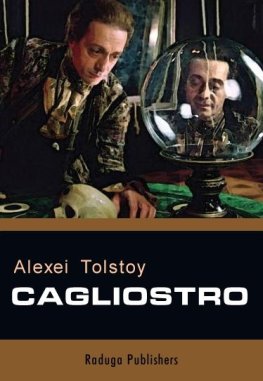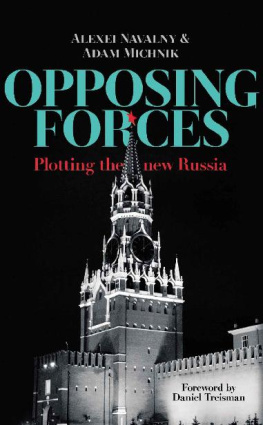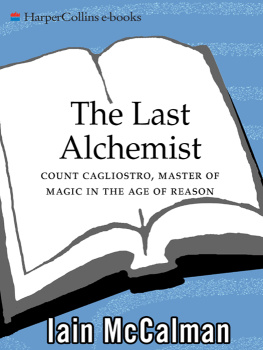" ", translated by Olga Shartse
(c) Raduga Publishers, Moscow, 1991
In Smolensk Uyezd, on the tall bank of the river, in the middle of a hilly plain, covered with stripes of wheat fields and small birch woods, sprawled an estate called White Springs, the ancient family seat of the Princes Tulupov. The original wooden house, standing in a dip of the land, had been boarded up and abandoned. The new mansion with columns in the Greek style faced the river and the fields beyond. At the back of the house there were two wings which stretched into the park, complete with ponds, islands, and fountains.
Besides, in different corners of the park one could come upon a stone woman with an arrow, or an urn with this inscription on the socle: "Sit here a while and ponder how fleet is time", or else some sad ruins, now tangled in creepers. The house and the park had been completed some five years earlier when the mistress of White Springs, Princess Praskovia Tulupova, widow of the Brigadier, suddenly died in her prime. The estate was inherited by her third cousin Alexei Fedyashev, then serving as an officer in St. Petersburg.
Alexei sent in his papers and settled down to a quiet existence in the privacy of White Springs together with his aunt Fedosia Ivanovna Fedyasheva. He was a quiet, dreamy sort, and still very young-he had just turned nineteen. He gladly resigned from the military service because the noise and bustle of the Court receptions, the din of the regimental drinking parties, the laughter of the beauties at the balls, the smell of powder and the rustle of their silk skirts gave him a splitting headache and a stitch in his heart.
With quiet joy he welcomed this privacy amid the fields and woods. Sometimes he rode out to look at the haymaking or reaping, sometimes he sat angling on the bank of the river under an old willow, and sometimes he gave orders for the village girls to dance around the pond in the park and watched this picturesque scene from a window. On winter evenings he read avidly, while Fedosia Ivanovna played solitaire, as the wind howled in the tall garrets, and the little old man who took care of the stoves shuffled along the creaking floorboards to stoke up the fire here and there.
And that is how they lived, in peace and quiet. But soon Fedosia Ivanovna began to notice that something was not quite right with Alexis, as she called her nephew. He was strangely moody, absent-minded and pale. And once Fedosia Ivanovna ventured to say to him:
"Isn't it time, my dear, for you to take the plunge and marry, because, after all, if you go on looking at an old mushroom like me all life long, something might go wrong with you"
What a hope! He actually stamped his foot in anger. "Stop it, auntie I have no wish now or ever to sink into such boring prosiness: going about in a dressing gown all day long and playing tre-septs with guests And then whom would you have me marry, I'd like to know?"
"Prince Shakhmatov has five daughters," replied his aunt. "All excellent wenches. And then Prince Patrikeyev has fourteen daughters Then there are the Svinyins-Sasha, Masha, Dasha"
"Ah, auntie, auntie dear, all the girls you have named possess excellent qualities, but just think: supposing my heart is fired with passion, we marry, and what then? The one whose glove or garter should excite and thrill me, starts running about with a bunch of keys, poking into the barn, puttering in the store-rooms, or else ordering chicken noodle soup for dinner and spooning it up in my presence"
"But why must it be noodle soup, Alexis? And even if it is noodle soup, what's wrong with that?"
"No, auntie, only a superhuman passion could break down my melancholy But there is no woman capable of this in the world."
Saying this he glanced with languid longing at the wall on which hung a large, full-length portrait of the beautiful Praskovia Tulupova. Then, with a sigh, he snugly wrapped himself into his dressing-gown made of silk with a Chinese pattern, filled his pipe, and settled down in an armchair at the window, to puff on his pipe and gaze at the thin plumes of smoke curling up.
However, it seems that he did let something slip and his aunt did understand something, because, glancing at him in wonder, she said:
"If you're a man, then love a woman and not some lunatic dream, for mercy's sake"
Alexei said nothing in reply. In the yard, overgrown with curly grass, where his bored gaze travelled, a reddish calf stood sucking at the ear of another calf. The yard sloped down to the river, on the bank of which, amid the burdocks sat several white geese, much like lumps of snow; one of the geese rose, flapped its wings and sat down again. It was sultry and quiet at this midday hour. Hazy waves of heat hovered and quivered above the wheat fields beyond the river. A peasant came riding along the road that emerged from a small birch wood, then he went down to the ford, the horse stepped belly-deep into the water and began to drink. Now he turned the horse round, scattering the frightened geese, galloped up the slope, sticking out his elbows and dangling his bare feet, called out something to a servant girl carrying an armful of straw, guffawed, but suddenly noticing the master in the window, quickly jumped down from the horse and doffed his cap. This was the Fedyashevs' messenger boy who was sent once a week to fetch the mail. This time he brought a letter for Fedosia Ivanovna and a batch of books for the master.
Fedosia Ivanovna went to fetch her glasses. Alexei started glancing through the books. His attention was caught by an article in the 28th issue of the Economic Magazine on the causes of hypochondria. "The primary unfortunate source of hypochondria is a cruel and lasting indulgence in carnal desires and such passions which maintain the spirit in perpetual melancholy; a man, troubled by such desires for which he does not see an outlet, seeks privacy, sinks more and more into the depths of sadness, until at last the nerves of his stomach and intestines become utterly exhausted"
After reading these lines, Alexei closed the book. And so, hypochondria was in store for him, since there was no outlet for the passion, devouring his soul.
About half a year ago, when Alexei was finishing the interior decoration of some of the rooms, he went to the old house to see if there were any things there worth salvaging. He remembered going there as if it were yesterday. The sun was setting in colours that presaged hard frost. Dry snow was already swirling over the cooling fields. An ancient crow, croaking harshly, took wing from a birch tree, adorned with hoarfrost, and sifted snow over Alexei who, in a jacket lined with fox fur, was walking along a path on the river bank which had just been swept clean of snow.
A village girl, squatting beside the ice-hole on the river, was drawing water; she filled her pails, lifted them on the yoke over her shoulder, and went home, turning her round, black-browed face at the master every now and again. In the village, lights were appearing in the snow-crusted little windows in the cottages here and there between the snowdrifts; gates could be heard creaking, and voices that sounded clear in the frosty air. A bleak, peaceful picture.
Alexei mounted the porch steps of the old house, ordered the boards to be ripped off the front door, and entered the rooms. Everything was covered with dust, everything terribly old and gone to rack and ruin. The servant boy who walked ahead of him with a lantern threw the light on some gilding on the wall, and then on broken bits of furniture dumped into a corner. A large rat ran across the room. Apparently, everything of any value at all had been taken out of the house. Alexei was about to turn back, but then, going past a low-ceilinged empty room, he looked in and saw, hanging crookedly on the wall, a large, full-length portrait of a young woman. The servant boy raised the lantern. There was a film of dust on the canvas, but the colours were fresh, and Alexei discerned a face of wondrous beauty, smoothily dressed and powdered hair, arched eyebrows, a small and passionate mouth with the corners curling up, and a cream-coloured gown cut very low on the high, maidenly bosom. The hand which lay serenely under the breast held a rose.










